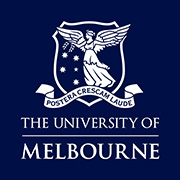Course Level
Master Degree (By Coursework)
CRICOS
075003K
Master of Banking and Finance Law
The Master of Banking and Finance Law (MBank&FinLaw) is designed to give you a sophisticated understanding of the legal and regulatory framework for the Australian and international financial sector. Its available for both law and non-law graduates and the flexible structure makes it ideal for practitioners and other professionals who are looking to immerse themselves in the study of banking and finance law. As a student, you can choose from a range of subjects that include banking, funds management, finance transactions, superannuation, financial services and capital markets.
Campus | Duration | Fees | ATAR |
|---|---|---|---|
Parkville | Full-time - 1 years Part-time - 42 months | $46,976 | N/A |
Structure
Students must complete 100 credit points in total.
Subjects
- Advanced Payment Devices and Fintech
- Australian Consumer Law
- Banking and Secured Finance
- Blockchain and Cryptocurrency Law
- Business Negotiations and Deal-Making
- Climate Law, Economics and Finance
- Commercial Applications of Equity
- Corporate Insolvency and Reconstruction
- Cryptoassets in Global Context
- FinTech and Payments Law
- Fundamentals of the Common Law
- Global Financial Architecture
- Hedge Funds and Private Equity Funds
- Impact Investing: Driving Change
- International Business Transactions
- International Economic Law
- International Financial System
- International Financial Transactions
- International Legal Internship
- International Sustainable Finance
- Investment Deals and Disputes in Asia
- Project Finance
- Regulation of FinTech
- Superannuation Law
Entry requirements
- A degree in law (LLB, JD or equivalent) leading to admission to practice with a University of Melbourne equivalent score of at least 70, OR
- A degree in law (LLB, JD or equivalent) leading to admission to practice, or equivalent and two years of documented relevant professional experience, OR
- An undergraduate degree in a relevant discipline and two years of documented relevant professional experience, OR
- An undergraduate degree in a relevant discipline and
- successful completion of four subjects in a cognate graduate diploma and one year of documented relevant professional experience.
